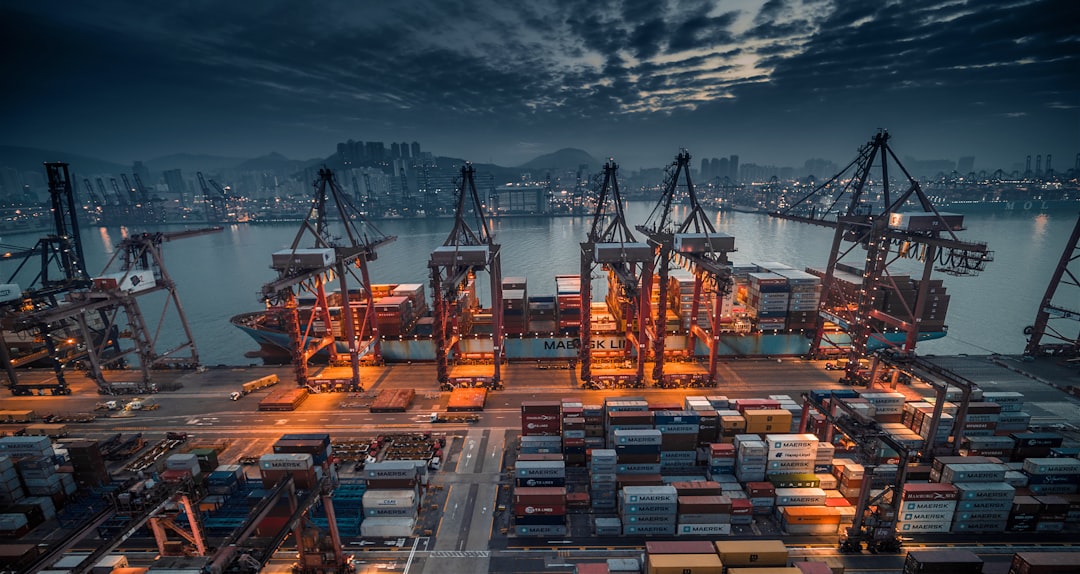International trade offers immense opportunities for growth and expansion, but it also presents a complex web of risks. From political instability to logistical nightmares and fluctuating exchange rates, navigating the global marketplace requires a robust risk management strategy. This guide delves into the key areas of concern and provides actionable steps to mitigate potential losses and ensure the success of your international ventures.
1. Political and Economic Risks: Understanding the Geopolitical Landscape
Political and economic instability are major threats to international trade. Political risks encompass events like regime changes, civil unrest, wars, and trade sanctions. These can disrupt supply chains, delay shipments, and even lead to asset seizure. Economic risks involve fluctuations in exchange rates, inflation, and economic downturns in target markets. These can impact profitability, pricing strategies, and the overall viability of your international operations. Effective management requires:
- Thorough Due Diligence: Conduct comprehensive research on the political and economic climate of your target markets. Utilize resources like the World Bank, International Monetary Fund (IMF), and country risk assessment reports.
- Diversification: Don’t put all your eggs in one basket. Diversify your sourcing and market destinations to reduce your exposure to regional risks.
- Political Risk Insurance: Consider purchasing political risk insurance to protect against losses arising from political events beyond your control. This can cover risks such as expropriation, nationalization, and war.
- Hedging Strategies: Implement hedging techniques to mitigate exchange rate risks. This could involve forward contracts, futures contracts, or options to lock in favorable exchange rates.
2. Logistical Challenges: Ensuring Smooth Supply Chain Operations
International trade involves intricate supply chains that are susceptible to disruptions. Delays, damage, and loss of goods during transit are common occurrences. Furthermore, navigating customs procedures, documentation requirements, and different regulatory frameworks in various countries adds complexity. To mitigate these risks:
- Reliable Shipping Partners: Choose reputable and experienced shipping companies with a proven track record of handling international shipments. Ensure they have adequate insurance coverage.
- Robust Documentation: Maintain meticulous records of all documentation, including invoices, bills of lading, certificates of origin, and other necessary permits. Inaccurate or incomplete documentation can lead to delays or rejection of shipments.
- Inventory Management: Implement effective inventory management techniques to ensure adequate stock levels while avoiding excessive inventory holding costs. Consider using inventory management software for better tracking and control.
- Contingency Planning: Develop contingency plans to address potential disruptions in your supply chain. This might involve having backup suppliers or alternative shipping routes.
3. Financial Risks: Managing Payments and Currency Fluctuations
Financial risks are inherent in international trade, particularly concerning payments and currency fluctuations. Payment delays, non-payment by buyers, and exchange rate volatility can significantly impact profitability. To mitigate these risks:
- Trade Finance Instruments: Utilize trade finance instruments such as letters of credit (LCs), documentary collections, and purchase order financing to secure payments and manage credit risk.
- Credit Insurance: Consider purchasing credit insurance to protect against non-payment by buyers. This can cover losses due to insolvency or political risks.
- Currency Hedging: Employ currency hedging strategies to manage exchange rate risks. This involves using forward contracts, futures contracts, or options to lock in favorable exchange rates.
- Due Diligence on Buyers: Conduct thorough due diligence on potential buyers to assess their creditworthiness and financial stability.
4. Legal and Regulatory Compliance: Navigating the Complex Web of Laws
International trade involves a complex web of laws and regulations in multiple jurisdictions. Non-compliance can lead to hefty fines, legal disputes, and reputational damage. Effective risk management requires:
- Legal Counsel: Seek advice from experienced international trade lawyers to ensure compliance with all relevant laws and regulations.
- Understanding Trade Agreements: Familiarize yourself with relevant trade agreements and tariffs that affect your specific products and markets.
- Customs Regulations: Understand the customs regulations and procedures in your target markets to ensure smooth clearance of shipments.
- Contractual Agreements: Draft clear and comprehensive contracts that specify payment terms, delivery schedules, and dispute resolution mechanisms.
5. Cybersecurity Risks: Protecting Sensitive Data in a Digital World
In today’s digital age, cybersecurity risks pose a significant threat to international trade. Data breaches, cyberattacks, and fraud can disrupt operations, compromise sensitive information, and lead to financial losses. To mitigate these risks:
- Robust Cybersecurity Measures: Implement strong cybersecurity measures, including firewalls, intrusion detection systems, and data encryption.
- Employee Training: Train employees on cybersecurity best practices, including phishing awareness and password security.
- Data Backup and Recovery: Regularly back up your data and develop a comprehensive data recovery plan to minimize the impact of data loss.
- Secure Communication Channels: Use secure communication channels for exchanging sensitive information with partners and customers.
Effective risk management is crucial for success in international trade. By proactively identifying, assessing, and mitigating potential risks, businesses can significantly enhance their chances of achieving their global ambitions. Remember that continuous monitoring and adaptation are key to navigating the ever-evolving landscape of international commerce.
SEO-Friendly Tags:
international trade risk management, global trade risks, import export risks, supply chain risks, trade finance




